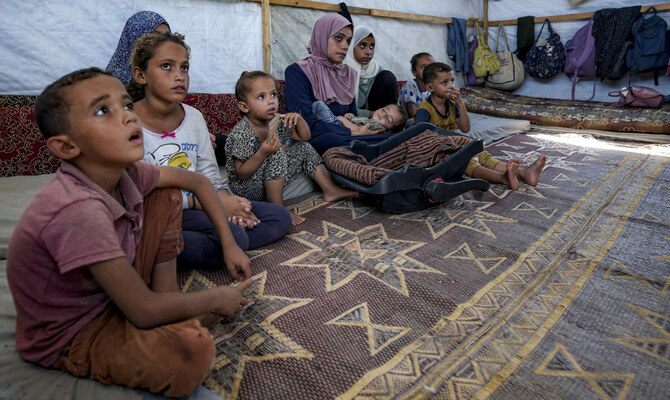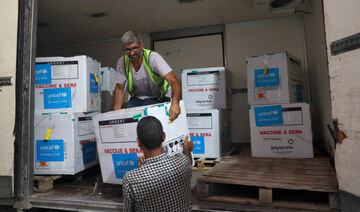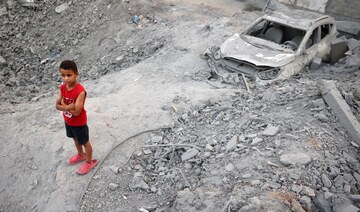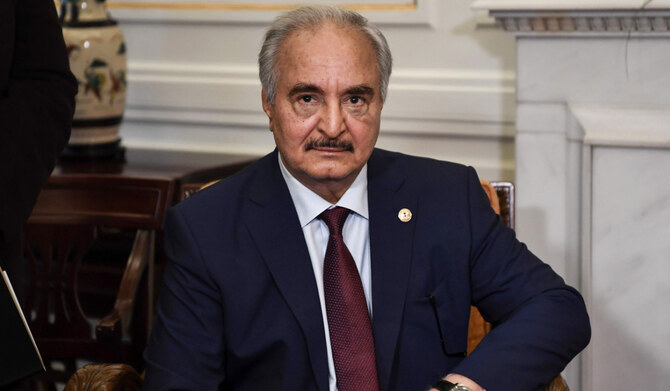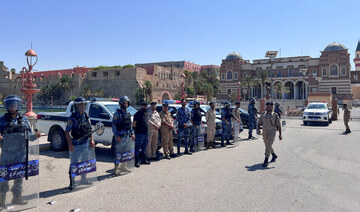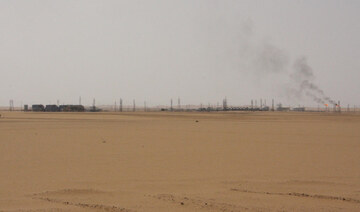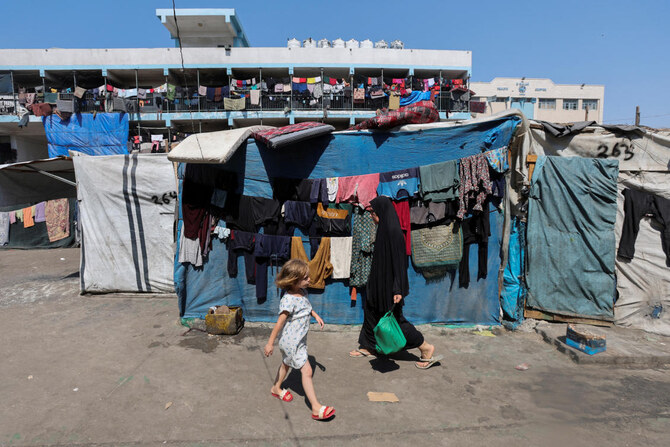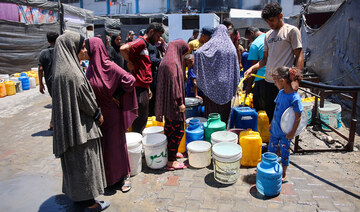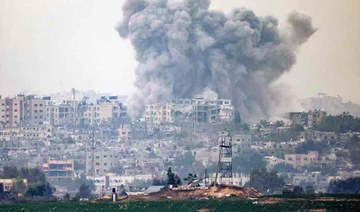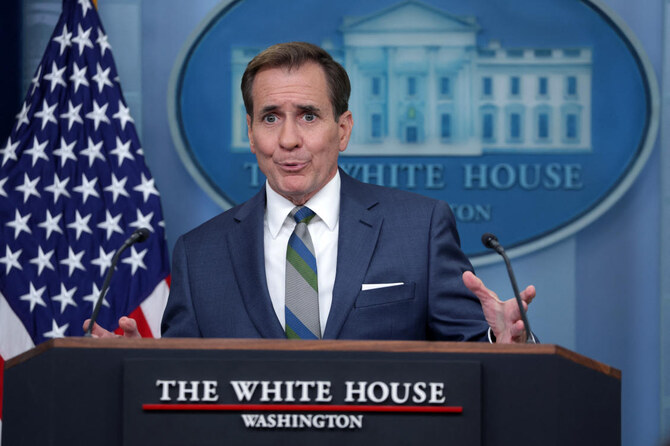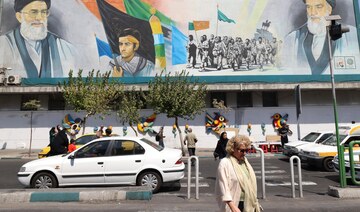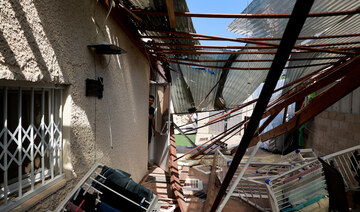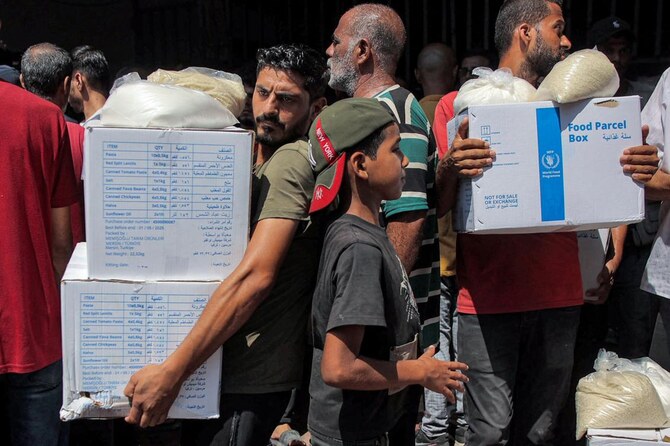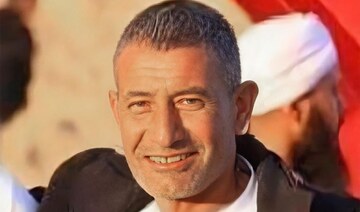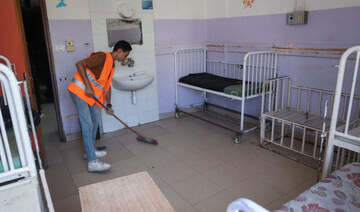DEIR AL-BALAH, Gaza Strip: Gaza lost communications Sunday in its third total outage of the Israel-Hamas war, while Israel’s military said it encircled Gaza City and divided the besieged coastal strip into two.
“Today there is north Gaza and south Gaza,” Rear Adm. Daniel Hagari told reporters, calling it a “significant stage” in Israel’s war against the Hamas militant group ruling the enclave. Israeli media reported troops were expected to enter Gaza City within 48 hours. Strong explosions were seen in northern Gaza after nightfall.
The “collapse in connectivity” across Gaza, reported by Internet access advocacy group NetBlocks.org and confirmed by Palestinian telecom company Paltel, made it even more complicated to convey details of the new stage of the military offensive.
“We have lost communication with the vast majority of the UNRWA team members,” UN Palestinian refugee agency spokesperson Juliette Touma told The Associated Press. The first Gaza outage lasted 36 hours and the second one for a few hours.
Earlier Sunday, Israeli warplanes struck two refugee camps, killing at least 53 people and wounding dozens in central Gaza, the zone where Israel’s military had urged Palestinian civilians to seek refuge, health officials said. Israel said it would press on with its offensive to crush Hamas, despite US appeals for even brief pauses to get aid to desperate civilians.
Gaza’s Hamas-run Health Ministry said more than 9,700 Palestinians have been killed in nearly a month of war in Gaza, more than 4,000 of them children and minors. That toll likely will rise as Israeli troops advance into dense, urban neighborhoods.
Airstrikes hit the Maghazi refugee camp, killing at least 40 people and wounding 34 others, the Health Ministry said. An AP reporter at a nearby hospital saw eight dead children, including a baby, brought in after the strike. A surviving child was led down the corridor, her clothes caked in dust.
Arafat Abu Mashaia, who lives in the camp, said the Israeli airstrike flattened several multistory homes where people forced out of other parts of Gaza were sheltering.
“It was a true massacre,” he said. “All here are peaceful people. I challenge anyone who says there were resistance (fighters) here.”
There was no immediate comment from the Israeli military.

Palestinians look for survivors of the Israeli bombardment in the Maghazi refugee camp in the Gaza Strip on Nov. 5, 2023. (AP Photo/Hatem Moussa)
Another airstrike hit a house near a school at the Bureij refugee camp in central Gaza. Staff at Al-Aqsa Hospital told the AP at least 13 people were killed. The camp was struck on Thursday as well.
Despite appeals and overseas protests, Israel has continued its bombardment across Gaza, saying it is targeting Hamas and accusing the militant of using civilians as human shields. Critics say Israel’s strikes are often disproportionate, considering the large number of civilians killed.
On the ground, Israeli forces in Gaza have reported finding stashes of weapons, at times including explosives, suicide drones and missiles. The Israeli military said 29 of its soldiers have died during the ground operation.
US Secretary of State Antony Blinken met with Palestinian President Mahmoud Abbas in the occupied West Bank on Sunday, a day after meeting Arab foreign ministers in Jordan.
Abbas, who has had no authority in Gaza since Hamas took over in 2007, said the Palestinian Authority would only assume control of Gaza as part of a “comprehensive political solution” establishing an independent state that includes the West Bank and east Jerusalem — lands Israel seized in the 1967 war.
His remarks seemed to further narrow the already slim options for who would govern Gaza if Israel topples Hamas. The last peace talks with Israel broke down more than a decade ago, and Israel’s government is dominated by opponents of Palestinian statehood.
Blinken later visited Iraq to meet with Prime Minister Mohammed Shia Al-Sudani about the need to prevent the conflict from spreading, and about efforts to increase the flow of aid to Gaza, which Blinken called “grossly insufficient” at about 100 truckloads a day.
A Jordanian military cargo plane air-dropped medical aid to a field hospital in northern Gaza, King Abdullah II said on social media early Monday. This appeared to be the first aid delivered by Jordan, a key US ally that has a peace deal with Israel.
Earlier in his tour, Blinken met with Israeli Prime Minister Benjamin Netanyahu, who on Sunday reiterated that “there will be no cease-fire without the return of our abductees.”
Arab leaders have called for an immediate cease-fire. But Blinken said that “would simply leave Hamas in place, able to regroup and repeat what it did on Oct. 7,” when it stormed into southern Israel from Gaza, triggering the war.
Swaths of residential neighborhoods in northern Gaza have been leveled in airstrikes. The UN office for humanitarian affairs says more than half the remaining residents, estimated at around 300,000, are sheltering in UN-run facilities. The UN said Sunday that 88 staff members from its Palestinian refugees agency have been reported killed — “the highest number of United Nations fatalities ever recorded in a single conflict.”
Israeli planes again dropped leaflets urging people to head south during a four-hour window Sunday. Crowds walked down Gaza’s main north-south highway carrying baggage or pets and pushing wheelchairs. Others led donkey carts.
One man said they walked 500 meters (yards) with their hands raised while passing Israeli troops. Another described seeing bodies along the road. “The children saw tanks for the first time. Oh world, have mercy on us,” said one Palestinian man who declined to give his name.
Israel’s military said a one-way corridor would continue for residents to flee to southern Gaza.
The UN said about 1.5 million people in Gaza, or 70 percent of the population, have fled their homes. Food, water and the fuel needed for generators that power hospitals are running out. No fuel has come for nearly one month, the UN Palestinian refugee agency said.
The war has stoked wider tensions, with Israel and Lebanon’s Hezbollah militant group trading fire along the border.
Four civilians were killed by an Israeli airstrike in south Lebanon on Sunday evening, including three children, a local civil defense official and state-run media reported. The Israeli military said it had attacked Hezbollah targets in response to anti-tank fire that killed an Israeli civilian. Hezbollah said it fired Grad rockets from southern Lebanon into Israel in response.
In the Israeli-occupied West Bank, at least two Palestinians were killed during an Israeli arrest raid in Abu Dis, just outside of Jerusalem, according to the Palestinian Health Ministry. The military said a militant who had set up an armed cell and fired at Israeli forces was killed.
At least 150 Palestinians have been killed in the West Bank since the start of the war.
Many Israelis have called for Netanyahu to resign and for the return of roughly 240 hostages held by Hamas. Some families are traveling abroad to try to make sure the hostages aren’t forgotten.
Netanyahu has refused to take responsibility for the Oct. 7 attack by Hamas that killed more than 1,400 people. Ongoing Palestinian rocket fire has forced tens of thousands of people in Israel to leave their homes.
In another reflection of widespread anger, a junior government minister, Amihai Eliyahu, suggested in a radio interview that Israel could drop an atomic bomb on Gaza. He later called the remarks “metaphorical.” Netanyahu suspended Eliyahu from cabinet meetings, a move with no practical effect.
The US military on Sunday acknowledged positioning a nuclear weapon-capable Ohio-class submarine in the Middle East, although it’s unclear if it’s armed with nuclear ballistic missiles. Several Ohio-class submarines instead carry cruise missiles and the capability to deploy with special operations forces.









